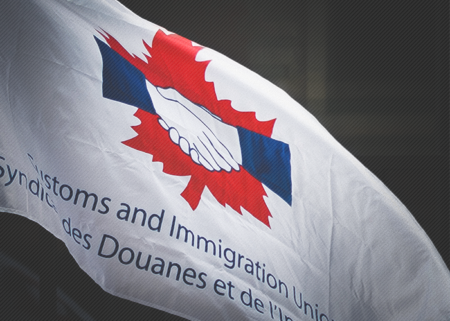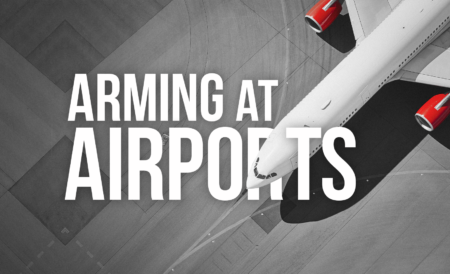On Wednesday afternoon (April 22, 2020), Jean-Pierre Fortin, CIU National President, had a comprehensive conversation with Minister Blair regarding the impact of the recent Order in Council (referred to as OIC-11) on our membership. Here is the update that was communicated to the CIU National Board of Directors, in which the National President highlights issues pertaining to border security, health and safety, and duties performed by officers.
Sisters and Brothers,
I wanted to provide Board members with an update on the conversation I had yesterday afternoon with Minister Blair.
Disclosure of Order in Council 11
The Minister explained that Orders in Council (OIC) cannot be publicly disclosed prior to implementation. That said, he recognized my frustration when I informed him that I had heard directly from Branch Presidents and members – several days ago – about the changes outlined in OIC-11. Worse, when I asked CBSA about these changes on Monday during our weekly teleconference, CBSA management merely stated that they would get back to me.
Border closure and refugees entering the country
The Minister and I agreed that the March Canada-USA border closure had been a good move. However, he then referred to the Safe Third Country Agreement (STCA) and the importance of Canada meeting its obligations under the agreement. The government expects that approximately 90% of those who will enter the country because of the OIC will be reuniting with family members. Should they have any COVID symptoms, they will not be permitted to enter. Should they not present any symptoms, they will be required to self-isolate for 14 days. The government does not anticipate a large numbers of refugees.
Ports of entry of concern
As I stated to the Minister, I am not sure that the number will be as low as the government expects. To that end, I asked if the Minister would agree to CIU providing information directly to him if we find that numbers are higher and are putting our members at risk. He agreed that we should monitor the situation and he wants to hear immediately from me about any concerns we have.
I mentioned POEs that were of concern to us (Lacolle, Niagara Falls, Fort Erie, Windsor, Sarnia, Pac Highway and Douglas). I am asking that Branch Presidents, particularly in these locations, keep an eye on the numbers and inform me immediately if they think that the safety of the public, the refugees or their own safety is being put at risk – and c.c. Mark Weber, CIU 1st National VP.
Health and Safety concerns
I also asked that PHAC and/or Health Canada be on site at these locations to help the POE ensure the Officers’ workplace has appropriate safeguards in place (e.g. plexiglas; markings for distancing). I informed the Minister that at Lacolle, when fingerprints were being taken by the Commissionaires, within a week five of them were contaminated with the virus. The Minister said he is acutely aware of CIU’s wish to ensure its officers are safe. As a former Chief of Police, that was his top priority. He stated that PHAC representatives were stretched thin across the country and they could not be there on a continuous basis.
However, it would be possible for someone with expertise to be sent to conduct a Health and Safety audit and put protocols in place to protect CIU members. When I told him that there was a lack of PPE at certain ports, he committed that his office would be following up with me. In reference to the fingerprinting of refugees, they can ensure that supplies are available to wipe screens after each person’s prints are taken. Masks would also be provided to refugees as an extra precaution.
First Responder status and border patrol
I asked again about the First Responder status for officers. When he stated that this request does not fall within the scope of his duties, I reminded him that as a member of Cabinet, he does have a say at the table.
I also reiterated that our Officers would be willing to patrol between POEs in order to keep Canada’s border safe. I suggested that this can be done in partnership with the RCMP (without taking away from their work). I informed him that I had been made aware that in certain areas, the US Border Officers are patrolling its border with US BP. It is my understanding that the RCMP had invited CBSA Officers to patrol with them.
The Minister did not commit to anything in this regard but did state that when he was last at a POE, he was impressed with the degree of collaboration he saw between the CBSA, RCMP and IRCC. He asked that I convey his sincere thanks and respect to CIU members for the work they are doing for Canadians.
At the end of the conversation, he restated that he wants to keep the communication lines open.
In solidarity,
Jean-Pierre Fortin
National President
Customs and Immigration Union




